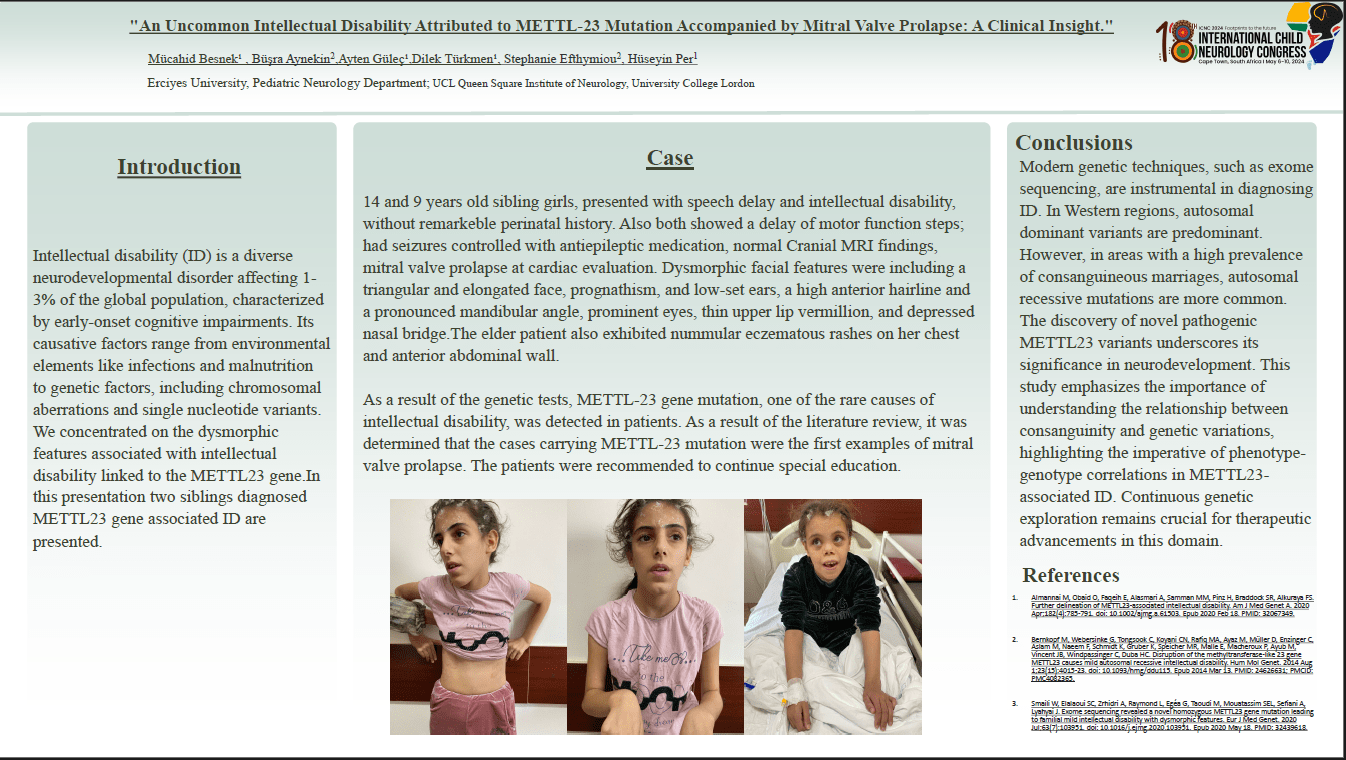An Uncommon Intellectual Disability Attributed To METTL-23 Mutation Accompanied By Mitral Valve Prolapse
Intellectual disability (ID) is a diverse neurodevelopmental disorder affecting 1-3% of the global population, characterized by early-onset cognitive impairments. Its causative factors range from environmental elements like infections and malnutrition to genetic factors, including chromosomal aberrations and single nucleotide variants. We concentrated on the dysmorphic features associated with intellectual disability linked to the METTL23 gene.In this presentation two siblings diagnosed METTL23 gene associated ID are presented. 14 and 9 years old sibling girls, presented with speech delay and intellectual disability, without remarkeble perinatal history. Also both showed a delay of motor function steps; had seizures controlled with antiepileptic medication, normal Cranial MRI findings, mitral valve prolapse at cardiac evaluation. Dysmorphic facial features were including a triangular and elongated face, prognathism, and low-set ears, a high anterior hairline and a pronounced mandibular angle, prominent eyes, thin upper lip vermillion, and depressed nasal bridge.The elder patient also exhibited nummular eczematous rashes on her chest and anterior abdominal wall. Modern genetic techniques, such as exome sequencing, are instrumental in diagnosing ID. In Western regions, autosomal dominant variants are predominant. However, in areas with a high prevalence of consanguineous marriages, autosomal recessive mutations are more common. The discovery of novel pathogenic METTL23 variants underscores its significance in neurodevelopment. This study emphasizes the importance of understanding the relationship between consanguinity and genetic variations, highlighting the imperative of phenotype-genotype correlations in METTL23-associated ID. Continuous genetic exploration remains crucial for therapeutic advancements in this domain.
Mücahid Besnek
Erciyes University
Turkey
Büşra Aynekin
UCL Queen Square Institute of Neurology, University College Lordon
United Kingdom
Ayten Güleç
Erciyes University
Turkey
Dilek Türkmen
Erciyes University
Turkey
Stephanie Efthymiou
UCL Queen Square Institute of Neurology, University College Lordon
United Kingdom
Hüseyin Per
Erciyes University
Turkey

Hüseyin Per
Erciyes University
Turkey